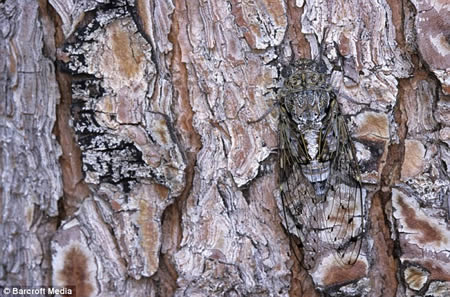The underside of this owl butterfly's wing blends in with woody texturesand features a large eyespot to startle predators. (by Jeff Foot)
Leaf insects or walkingleaves from the family Phylliidae are some of the best examples of leaf mimics. (by Sandilya Theuerkauf)
A Flounder (by sarahpooletwat)
A Locust mimicks a blade of grass in Burkina Faso. (via DM)
A Grey Cicada hides on pine bark in France (via DM)
A Rock Ptarmigan chick in its nest in Norway (via DM)
latfish are masters of animal camouflage (by fabiogis50)
Can you find the crabs camouflaged against the beach sand? (by babyruthinmd)
Paradoxophyla palmata, a narrow-headed frog native to Madagascar. The frog’s brown and yellow coloring, as well as its rough texture, allow it to blend in with the mud and tree trunks in its environment
The Indonesian Mimic Octopus has a unique ability to turn virtually any color or pattern. It is naturally brown and spotted but has been seen in every hue from ghost white, as shown above, to brilliant blue and fiery red or mysterious pink. (via DM)
This tarantula hides perfectly next to the flower (by dcp)
This Malaysian Orchid Mantis has cleverly adapted to resemble the striking white orchids of the region. (via DM)
Merlet's Scorpionfish look like colourful coral around the shores of Lifou Loyalty Islands, New Caledonia (via DM)
A Green frog emerging from the duckweeds in St Omer, France. (via DM)
This sand flathead (Platycephalus bassensis) is almost perfectly camouflaged (by richard ling)





























